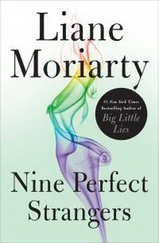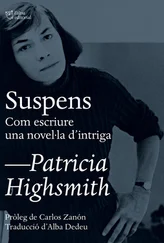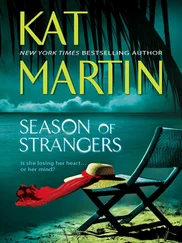One morning in mid-December, the telephone rang as Guy sat idly studying his drawings of the Connecticut house.
“Hello, Guy. This is Charley.”
Guy recognized the voice, felt his muscles tensing for a fight.
But Myers was within earshot across the room.
“How are you?” Bruno asked with smiling warmth. “Merry Christmas.”
Slowly Guy put the telephone back in its cradle.
He glanced over at Myers, the architect with whom he shared the big one-room office. Myers was still bent over his drawing board. Under the edge of the green windowshade, the bobbing pigeons still pecked at the grain he and Myers had sprinkled on the still a few moments ago.
The telephone rang again.
“I’d like to see you, Guy,” Bruno said.
Guy stood up. “Sorry. I don’t care to see you.”
“What’s the matter?” Bruno forced a little laugh. “Are you nervous, Guy?”
“I just don’t care to see you.”
“Oh. Okay,” said Bruno, hoarse with hurt.
Guy waited, determined not to retreat first, and finally Bruno hung up.
Guy’s throat was dry, and he went to the drinking fountain in the corner of the room. Behind the fountain, sunlight lay in a precise diagonal across the big aerial photograph of the four nearly finished Palmyra buildings. He turned his back to it. He’d been asked to make a speech at his old school in Chicago, Anne would remind him. He was to write an article for a leading architectural magazine. But so far as commissions went, the Palmyra Club might have been a public declaration that he was to be boycotted. And why not? Didn’t he owe the Palmyra to Bruno? Or at any rate to a murderer?
On a snowy evening a few days later, as he and Anne came down the brownstone steps of his West Fifty-third Street apartment house, Guy saw a tall bareheaded figure standing on the sidewalk gazing up at them. A tingle of alarm traveled to his shoulders, and involuntarily his hand tightened on Anne’s arm.
“Hello,” Bruno said, his voice soft with melancholy. His face was barely visible in the dusk.
“Hello,” Guy replied, as if to a stranger, and walked on.
“Guy!”
Guy and Anne turned at the same time. Bruno came toward them, hands in the pockets of his overcoat.
“What is it?” Guy asked.
“Just wanted to say hello. Ask how you are.” Bruno stared at Anne with a kind of perplexed, smiling resentment.
“I’m fine,” Guy said quietly. He turned away, drawing Anne with him.
“Who is he?” Anne whispered.
Guy itched to look back. He knew Bruno would be standing where they had left him, knew he would be looking after them, weeping perhaps. “He’s a fellow who came around looking for work last week.”
“You can’t do anything for him?”
“No. He’s an alcoholic.”
Deliberately Guy began to talk about their house, because he knew there was nothing else he could talk about now and possibly sound normal. He had bought the land, and the foundations were being laid. After New Year’s, he was going up to Alton and stay for several days. During the movie, he speculated as to how he could shake Bruno off, terrify him so that he would be afraid to contact him.
What did Bruno want with him? Guy sat with his fists clenched at the movie. The next time, he would threaten Bruno with police investigation. And he would carry it through, too. What vast harm was there in suggesting a man be investigated?
But what did Bruno want with him?
Nineteen
Bruno had not wanted to go to Haiti, but it offered escape. New York or Florida or anywhere in the American continent was torture so long as Guy was there, too, and would not see him. To blot out his pain and depression, he had drunk a great deal at home in Great Neck, and to occupy himself had measured the house and the grounds in paces, measured his fathers room with tailors tape, moving doggedly, stooping, measuring and remeasuring, like a tireless automaton that wavered only slightly off its track now and then, betraying the fact it was drunk and not deranged. Thus he spent ten days after seeing Guy, waiting for his mother and her friend Alice Leffingwell to get ready to go to Haiti.
There were moments when he felt his whole being in some as yet inscrutable stage of metamorphosis. There was the deed he had done, which in his hours alone in the house, in his room, he felt sat upon his head like a crown, but a crown that no one else could see. Very easily and quickly, he could break down in tears. There was the time he had wanted a caviar sandwich for lunch, because he deserved the finest, big black caviar, and when there had been only red in the house, had told Herbert to go out and get some black. He had eaten a quarter of the toasted sandwich, sipping a Scotch and water with it, then had almost fallen asleep staring at the triangle of toasted bread that finally had begun to lift at one corner. He had stared at it until it was no longer a sandwich, the glass with his drink no longer a glass, and only the golden liquid in it part of himself, and he had gulped it all. The empty glass and the curling toast had been live things that mocked him and challenged his right to use them. A butcher’s truck had departed down the driveway just then and Bruno had frowned after it, because everything had suddenly come alive and was fleeing to escape him—the truck, the sandwich, and the glass, the trees that couldn’t run away but were disdainful, like the house that imprisoned him. He had hit both his fists against the wall simultaneously, then seized the sandwich and broken its insolent triangular mouth and burnt it, piece by piece, in the empty fireplace, the caviar popping like little people, dying, each one a life.
Alice Leffingwell, his mother and he, and a crew of four including two Puerto Ricans left for Haiti in mid-January on the steam yacht, Fairy Prince, which Alice had spent all fall and winter wresting from her former husband. The trip was a celebration of her third divorce, and she had invited Bruno and his mother months before. Bruno’s delight in the voyage inspired him to a pretense of indifference and boredom during the first days. No one noticed. Alice and his mother spent whole afternoons and evenings chattering together in the cabin, and in the mornings they slept. To justify his happiness to himself at such a dull prospect as being cooped up on a ship for a month with an old bag like Alice, Bruno convinced himself he had been under quite a strain watching out the police didn’t get on his trail, and that he needed leisure to dope out the details of how his father could be got rid of. He also reasoned that the more time elapsed, the more likely Guy would be to change his attitude.
On shipboard, he detailed two or three key plans for the murder of his father, of which any other plans laid on the estate would be mere variations. He was very proud of his plans—one with gun in his father’s bedroom, one with knife and two choices of escape, and one with either gun or knife or strangulation in the garage where his father put his car every evening at 6:30. The disadvantage of the last plan was lack of darkness, but it had compensations in comparative simplicity. He could all but hear in his ears the efficient click-dick of his plans’ operations. Yet whenever he finished a careful drawing, he felt obliged to tear it up for safety. He was eternally making drawings and tearing them up. The sea from Bar Harbor to the southernmost of the Virgin Islands was strewn with the subdivided seeds of his ideas when the Fairy Prince rounded Cape Maisi bound for Port-au-Prince.
“A princely harbor for my Prince!” cried Alice, relaxing her mind in a lull of conversation with his mother.
Around the corner from them, in the shade, Bruno fumbled up the paper he had been drawing on and lifted his head. In the left quarter of the horizon, land was visible in a gray fuzzy line. Haiti. Seeing it made it seem more distant and foreign than when he had not seen it. He was going farther and farther away from Guy. He pulled himself from the deck chair and went over to the port rail. They would spend days in Haiti before they moved on, and then they would move farther south. Bruno stood perfectly still, feeling frustration corrode him internally as the tropical sun did externally now, on the pale backs of his legs. Abruptly, he ripped the plan to pieces and released them by opening his hands over the side. The wind perversely carried the pieces forward.
Читать дальше












